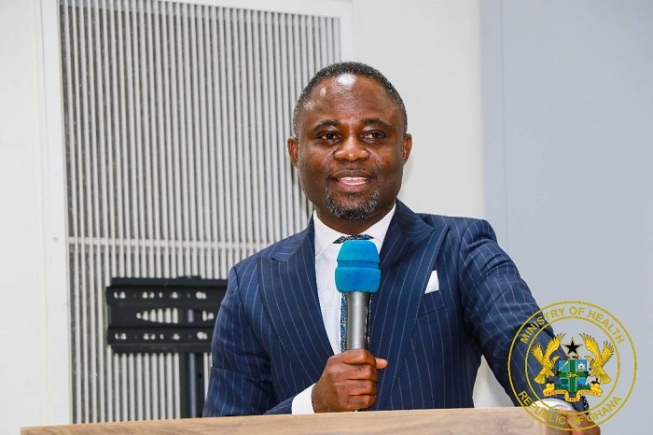The Minister of Health, Kwabena Mintah Akandoh has said that the newly launched Ghana Medical Trust Fund also referred to as the MahamaCares initiative, will prioritise specialist care for Ghanaians aged 18 to 45, the age group most affected by chronic non-communicable diseases (NCDs).
Mr Akandoh made the announcement at the launch of the fund in Accra on Tuesday, April 29 2025. He said the initiative marked the implementation of a major health financing promise made by President John Dramani Mahama during the 2024 election campaign.
“Available estimates show that NCDs account for approximately 43 per cent of all-cause mortality in Ghana, with a sharp increase recorded between 2012 and 2023,” Mr Akandoh said.
“What is even more worrying is that individuals aged between 18 and 45, the most productive segment of our population, now constitute over 50 per cent of the NCD cases.”
He said the Ghana Medical Trust Fund is intended to support care for conditions such as cancer, diabetes, complications from hypertension, chronic kidney failure and stroke.
The support will apply to services at the specialist level and will seek to fill gaps not currently addressed by existing schemes.
According to Mr Akandoh, the fund will also strengthen early screening and diagnosis across public and private facilities.
He noted that the high cost of treatment for chronic diseases has become a heavy burden for many families. “The average cost of care is around GH¢53,000 per patient,” he said.
“Individuals diagnosed with chronic conditions have a 75 per cent chance of falling into poverty within five years.”
Mr Akandoh disclosed that the lifting of the cap on the National Health Insurance Fund had now cleared the way for the Medical Trust Fund to proceed. “That obstacle has been removed,” he said.
“We can now proceed to build a more predictable source of funding for people in need.”
He referred to a recent survey involving more than 3,300 Ghanaians, which he said showed strong public backing for the initiative.
“More than half of those surveyed expressed a willingness to contribute monthly to the fund,” Mr Akandoh said.
He credited the task force that led the design of the fund, chaired by Reverend Professor Emeritus Seth Ayittey, for producing the policy document now guiding its implementation. He also acknowledged the role of the legal team and technical staff at the Ministry of Health.
According to Mr Akandoh, the Ghana Medical Trust Fund is consistent with the country’s existing health policies, including the 2020 National Health Policy and Ghana’s Roadmap for Attaining Universal Health Coverage from 2020 to 2030.
He urged all institutions under the Ministry of Health to support the rollout of the initiative, adding that it offered an opportunity to improve care for people living with long-term illnesses.

